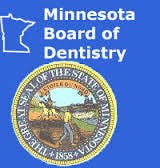Proposed Accreditation Standards for Dental Therapy Education Programs
The Commission on Dental Accreditation (CODA) directed that the proposed Dental Therapy Standards be distributed to the appropriate communities of interest for review and comment, with comment due December 1, 2013.
Send written comments to:
Sherin Tooks, Ed.D., M.S.
Director, Commission on Dental Accreditation
211 East Chicago Avenue, 19th Floor
Chicago, IL 60611
[email protected]
The ADHA policies support the establishment of new dental hygiene-based provider models that result in providers who are graduates of accredited education programs, are licensed, and are able to provide care directly to patients. While CODA has directed circulation of the proposed Dental Therapy Education Standards, there will be no implementation date until further documentation has been provided which shows that criteria #2 and #5 of the Principles and Criteria Eligibility of Allied Dental Programs for Accreditation by the Commission on Dental Accreditation, are met. It further notes that such criteria have not been utilized for any other allied dental program seeking accreditation. For more information of the ADHA stance on these standards, visit the ADHA website or contact your ADHA District Trustee.(1) The framework for accreditation should not be unattainable or overly difficult, but instead should adequately address each decisive factor for review. Criteria #2 and #5 should not create a barrier to the accreditation process or seem intended to prolong the development of accreditation standards. Initial outcome measures are being collected and demonstrate that these dental therapy clinicians currently in practice are providing safe and effective oral health care to a population of patients whose oral health care needs would have gone unmet, in most instances. Minnesota was the first, and is the only state in the USA, to provide for a mid-level oral health practitioner. The program at Metropolitan State University/Normandale Community College is a hygiene-based program track. The program at the University of Minnesota School of Dentistry, as it was initially developed, is a non-hygiene based program track. Accreditation of these programs is likely to be important in many other states where legislation to authorize dental hygiene therapy practice has been introduced, such as Kansas, Massachusetts, Maine, New Hampshire, New Mexico, Vermont, and Washington.
It’s important to share your input with CODA, especially if you are an educator, or working in an alternative practice setting. Others are encouraged to write also. Here are some things to consider when writing your testimony. The standards can be found on the CODA website.(2) CODA is circulating draft accreditation standards for a non-dental hygiene track for dental therapy, and did not develop accreditation standards for a dental-hygiene based dental therapy track. This is in spite of the fact that there were requests for development of both a dental hygiene program track and a non-dental hygiene track. Both educational programs, as well as the Minnesota Board of Dentistry, have made formal requests to CODA for accreditation standards for both tracks.
The non-dental hygiene based dental therapy program in Minnesota is located in a dental school. The dental-hygiene based dental therapy program is not located in a dental school but is affiliated with a dental school and is built on a dental hygiene education program. CODA is responsible for accrediting all dental and dental-related programs. CODA's mission is to serve the oral health care needs of the public through the development and administration of standards that foster continuous quality improvement of dental and dental related educational programs.(3) The task force focused its discussion and review on the models developed and used in Minnesota, Washington, Kansas, and Vermont, including legislative bills on scope of practice. The model in Minnesota is dual track; they have both a hygiene-based and non-hygiene based program track. Legislative proposals in Washington and Vermont are currently dual track. Kansas is hygiene-based. Standards need to be developed to accurately reflect current programs, practice, and laws. The only state with dental therapy programs seeking accreditation is Minnesota. Minnesota has both a non-hygiene program track and a hygiene-based program track. The standards created by CODA do not take into account the program model or design in the state of Minnesota. Please urge CODA to develop dental therapy standards for a dental hygiene-based dental therapy track. As you may know, there are graduates from both programs currently working in Minnesota. The graduates are effectively practicing as dental therapists and advanced dental therapists in that state. The Minnesota Board of Dentistry has approved both programs. Please ask CODA to develop accreditation standards that reflect the current practice, in relation to the newly created programs in Minnesota. The task force believed that CODA’s communities of interest should be requested to comment on the appropriateness of the proposed track or whether the Commission should develop dental therapy standards for individuals with a dental hygiene degree. For further background information, read the PEW report on In Search of Dental Care, Two Types of Dentist Shortages Limit Children’s Access to Care.(4)











